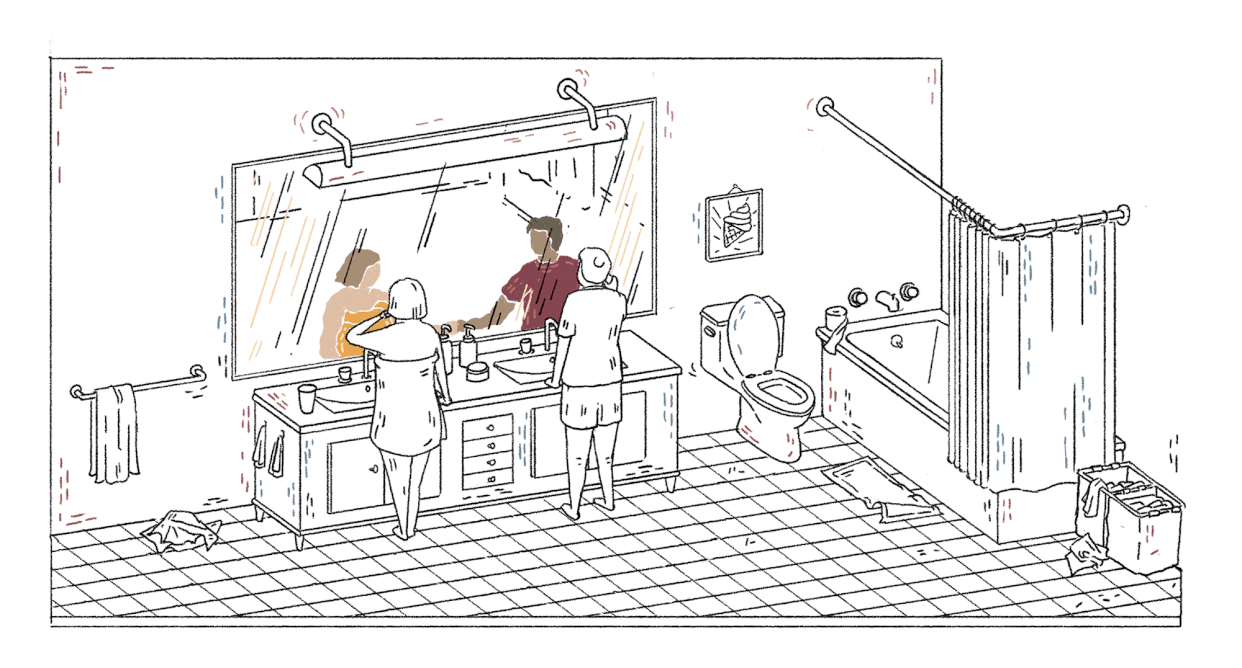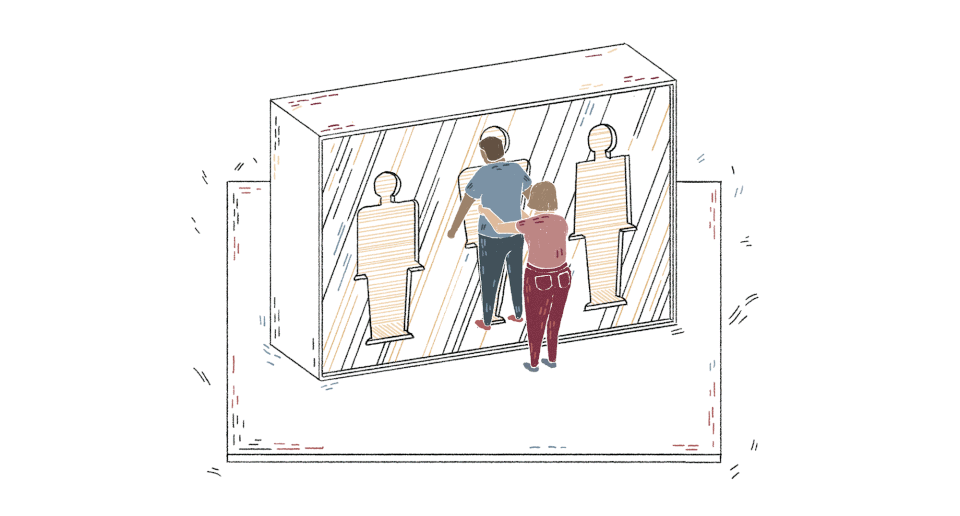'People don't change.' But can they?

“You can’t change someone.” “People are who they are.” “You’re too different.” Phrases like these are uttered as solace after countless breakups, or among friends as they nitpick the particulars of a partnership. But although some say change in a partner isn’t possible, research actually shows change is a natural and normal part of existing.
In the longest study on personality to date, published last year, scientists showed transformation is inevitable. Measuring six core traits over time — self-confidence, perseverance, stability of moods, conscientiousness, originality, and the desire to learn — researchers discovered there was little connection between the self-rated personality characteristics at age 14 and age 77. The meaning? People change.
Change gets a bad rap, but in reality, it’s going to happen. It should happen, and in a relationship, change needs to incorporate another person — which is complicating but also beautiful. You and your partner should be talking about issues openly, and making tweaks and adjustments to get you two to the best place you can possibly be. If you know your partner’s needs and wants, you both can make changes in a certain direction to better yourself and your relationship. You should also be prepared, as the study shows, for the reality that you and your partner will change over time — and that you constantly need to be course-correcting to make sure you are both on the same path.

Change. It’s a scary word and a nerve-wracking concept, but it’s a normal part of a healthy relationship. You are not going to change the core of a person, but you can make (and demand) compromises on the little things that get under your skin. Start here.
Change should be goal-oriented.
There are ways to make change mutually beneficial; if you’re goal-oriented as a couple, you can make positive changes to reach toward better outcomes as a team. Set goals together. Maybe you want to split your time with friends and alone as a couple. Pencil the split into your calendar, or set a monthly quota. Maybe you’re more adventurous than your partner, and would like to share in more activities together. Start small. Don’t go straight to skydiving, but maybe a short trip into town on your motorcycle would be a nice introduction.
Have conversations about changes that you want to make, not arguments about what you want to change in your partner. How can you both grow individually, closer to goals and closer together? Be creative. If it’s important that your partner change, start small. Make it mutual.
Requests should be presented as needs to be met.
A lot of fights happen when you try to control your partner’s behavior. This is the wrong way to prompt change. Instead, present your needs and let your partner find ways to meet them. For instance, if you would like more advance notice before your partner wants you to show up somewhere, then explain why last-minute invites are particularly difficult for you. Maybe you don’t have time to change after work, or you’re likely to have made plans already.
Positive and negative reinforcement can be useful here; if those invites are still last-minute, politely explain how you “wish you’d had more notice, because you can’t make it.” Your partner will get the hint if they want you to actually be somewhere to share in the good times. And don’t forget: You don’t always get your way. Agree to the occasional spontaneous event, even if you’re a highly structured person with a calendar to match.
Change must happen willingly.
A lot of people say change isn’t possible, but I think what many are trying to say is that “change isn’t possible if you or a partner isn’t willing.” The bottom line is when you love someone, you make changes and compromises to accommodate their needs and preferences. When you love someone, you want to make time for them, bond with them, and make them happy. Most of the time, that takes some active adjustments.
If your partner still isn’t working to accommodate you (just as you need to work to accommodate them), then have a specific discussion at a neutral time (not just after the offense) about how their behavior makes you feel. Trust me, a caring partner will want to step up to the plate — just like you’d want to do for them if the tables were turned.
Little changes are possible — like asking a partner to call when they’re on their way home. But if you’re asking someone to change a big piece of their personality — their core values or guiding principles — you are taking things too far. If you don’t like the fundamentals of a person, then it’s time to move on. There are some things you can totally change, and some things that won’t ever change. Know the difference, and you will be golden.
Jenna Birch is the author of The Love Gap: A Radical Plan to Win in Life and Love (Grand Central Life & Style). Her relationship column appears on Yahoo every Monday. To ask her a question, which may appear in an upcoming post, send an email to jen.birch@sbcglobal.net with “Yahoo question” in the subject line.
Read more from Yahoo Lifestyle:
Mom spreads warning of ‘Deodorant Challenge’ after daughter is severely burned
One woman’s chronic ‘runny nose’ was actually a brain leak — here’s what that means
Follow us on Instagram, Facebook, and Twitter for nonstop inspiration delivered fresh to your feed, every day.

